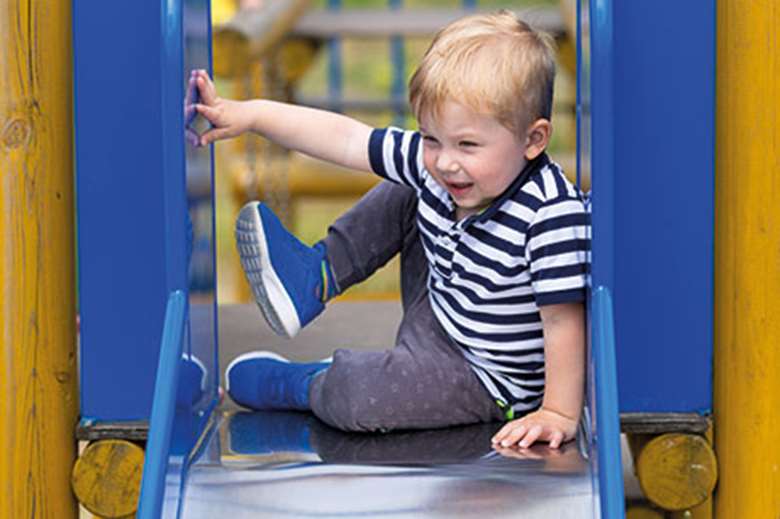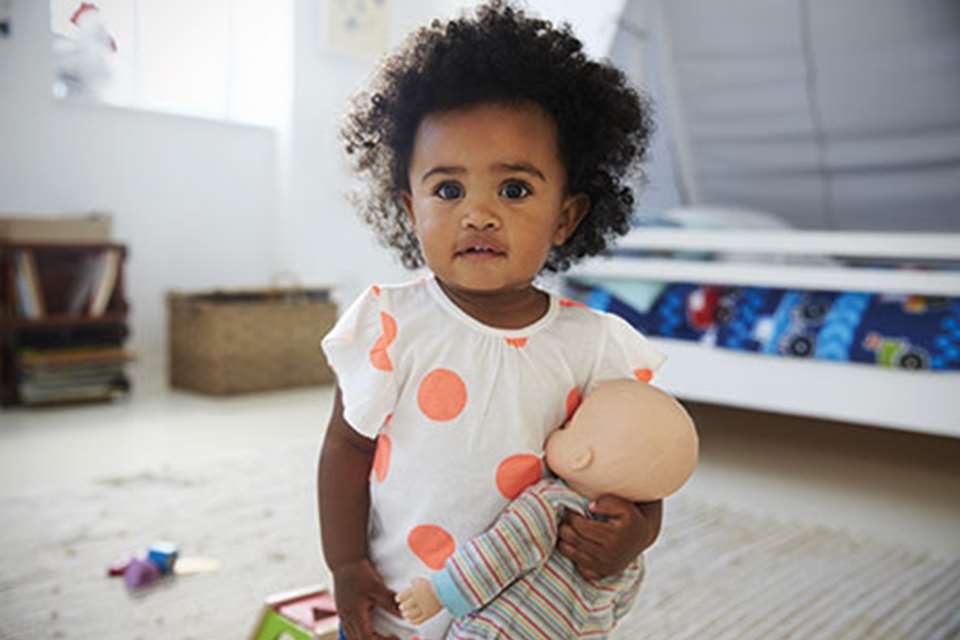Speech & Language: Part 7 - Follow me
Penny Tassoni and Anne-Marie Tassoni
Monday, October 29, 2018
What are the developmental expectations for attention and listening in two- to three-year-olds and when should concerns be raised? By Anne-Marie Tassoni and Penny Tassoni

[asset_library_tag 1882,Download the PDF of this article]
QUESTION...
At my busy pre-school, we have two children who are always very disruptive at storytime. The boy is two years old and has just started at the setting, while the girl is nearly three years old and has been with us since she was two. The two-year-old is able to share a story with his key person and is always the first child to be ready when we say ‘snack time’! The older child rarely follows instructions unless she is shown what to do, but even then is easily distracted. Generally, she seems to find it hard to concentrate on anything, even when she has chosen the activity herself. Her parents say that at home she uses only the odd word and that she finds it hard to follow simple instructions such as ‘Where’s daddy?’ or ‘Give mummy the cup’.
To better understand how best to meet the needs of each of these children, it is worth looking at typical development. Between the ages of two and three years, children’s attention, listening and understanding develop at a pace. This means that typically a child who is nearly three will be in a very different place than a child who has just turned two. This is one reason why milestones for speech and language are often divided into six-month stages.
ATTENTION, LISTENING AND UNDERSTANDING
2 years – 2½ years
Most children in this age group will need an adult to prompt them to start listening – for example, by saying their name. They are likely to listen for very short periods at a time before becoming distracted. While children can listen to talk that is addressed directly to them, they will find it hard to listen when adults are talking to them in groups – although they may be able to join in with action rhymes.
Most children are able to follow simple, short instructions, such as ‘Make teddy sit’ or ‘Get your coat’, and understand simple ‘where’ ‘what’ and ‘who’ questions.
Children are also likely to be able to understand words that are associated with familiar routines such as nappy-changing and snack time.
2½ years – 3 years
Most children will still need an adult to prompt them to listen, especially when they are focused on something else that is of interest to them. Children will still find it easier to listen when conversations or talk is being addressed directly to them. They can enjoy a picture book when it is being shared with them individually or in pairs, but will find group stories challenging.
Typically, children will also be able to follow longer instructions such as ‘Find your coat and your bag’. They will also start to understand more of what is being said including words such as ‘in’ and ‘under’ as well as such concepts as ‘wet’, ‘dry’, ‘big’ and ‘little’.
FACTORS AFFECTING DEVELOPMENT
In addition to looking at typical milestones, early years practitioners also need to be aware of the other factors that are potentially affecting a child’s development. For example:
Transitions Children who are new to a setting may still be developing relationships with adults and may, therefore, find it hard to concentrate on what is being said.
Sleep Being tired has a huge impact on children’s ability to concentrate and listen.
Hearing You should be aware that the temporary hearing loss caused by what is known as ‘glue ear’ is quite common among children under five years old.
Activity levels Finally, this age group is also associated with being very restless.
WHEN TO BE CONCERNED
The following indicators can suggest that a child may need additional support. The child:
- is unable to focus and follow simple adult directions
- responds to questions in a way that you would not expect. For example, in response to the question ‘Where’s teddy?’, the child says ‘Blue’
- has low levels of concentration even when the child has chosen the activity
- is very easily distracted, especially when there is noise
- has difficulty in understanding adults unless shown what to do
- has difficulty in recognising familiar routines and responding to words associated with them
- shows no interest in books or stories when these have been available at home and are offered regularly in the setting.
In this particular case study, therefore, the two-year-old boy’s attention, listening and understanding are in line with typical development, although the setting may want to consider whether he is developmentally ready for group activities that involve listening.
On the other hand, the three-year-old girl may need to be referred to the local speech and language therapy team in order to find out more about her needs, as she appears to have unusually low levels of concentration, has not tuned into familiar routines and is unable to follow simple instructions.
HOW TO SUPPORT TWO-YEAR-OLDS
- The following strategies are useful in supporting the attention, listening and understanding of two-year-olds:
- Always make sure that you have a child’s attention before talking to them, especially when giving instructions. This might include making eye contact with a child, saying their name or waiting until they have finished what they are doing before speaking to them.
- Use simple language and keep your phrases short when giving instructions. For example, say ‘Rosie, get your coat and gloves’ instead of ‘Rosie, now you need to go and get your coat and gloves from your peg’. Keeping language simple and phrases short allows children to focus on the key words in a sentence and so helps their understanding. Explanations are best used when children’s language is more developed.
- Put in plenty of pauses when talking to children. This gives them time to think about and understand what has been said.
- Try to talk in the ‘here and now’ – for example, comment on what a child is doing or things that the child can see are happening. This helps children to understand the connection between words and objects or actions.
- When planning activities that involve language, think carefully about group size and make sure that it is matched to individual children’s levels of listening and understanding. While some children with strong levels of language can listen to other children, most two-year-olds will find this challenging.
- Look out for play opportunities that involve following simple instructions. In the home corner, you could see if a child will bring you different things such as a cup of tea or a plate.
Nursery World Show 2019
Penny Tassoni will be among the top early years experts delivering our seminar and masterclass programme at the Nursery World Show in Islington, London on 1-2 February 2019.
Penny will be tackling two of the subjects that Government and Ofsted now deem critical to a child’s academic success and ‘closing the gap’: the ability to self-regulate and a good vocabulary.
Other speakers at the two-day event include Kym Scott, who will be looking at challenge and progression in children’s learning; Jan Dubiel will be tackling learning and teaching in the EYFS; and Jane Dyke will be outlining a Froebelian approach to behaviour.
Giving advice on how to support children with hidden disabilities and children with autistic spectrum disorders will be inclusion expert Wendy Usher. And returning for another year to speak on the principles of the curriculum and on cultural diversity is Judith Twani.
For full details of the seminar and masterclass programme and to book a place, visit: www.nurseryworldshow.com
Part 8 of this series will be published in the 26 November issue of Nursery World










